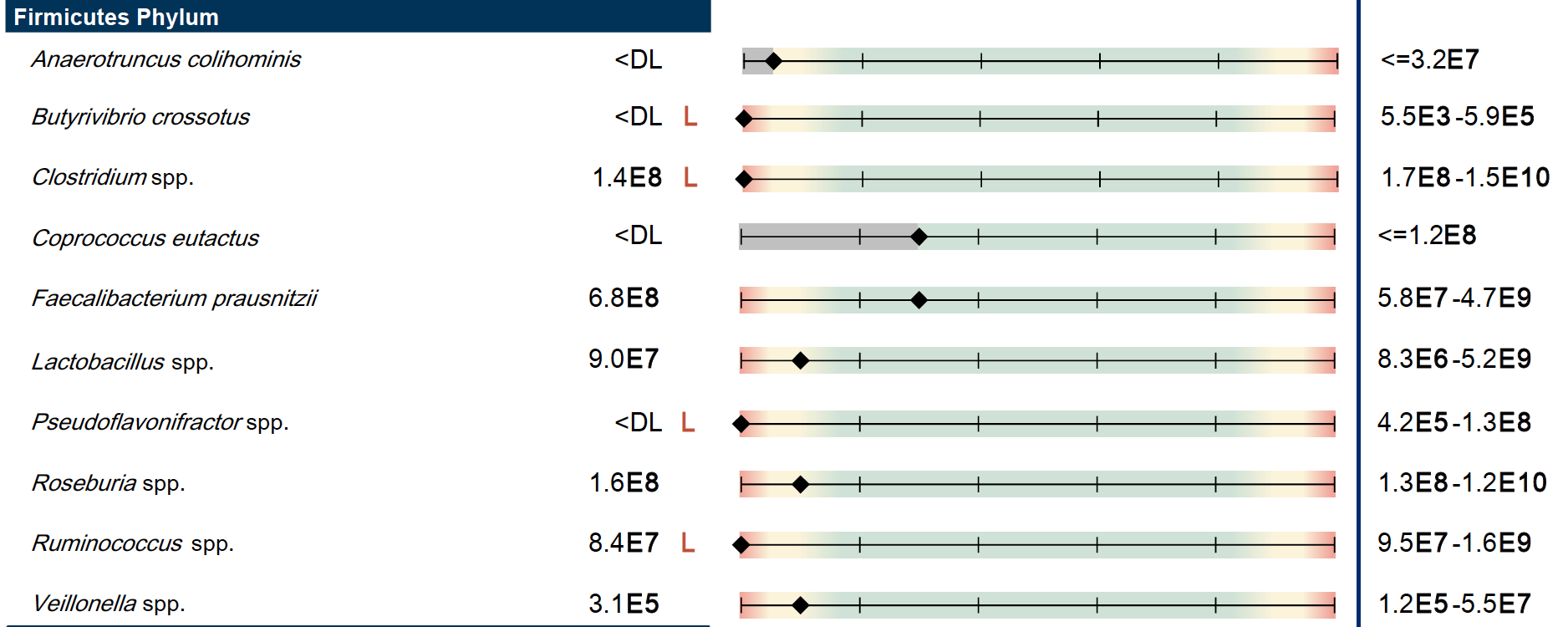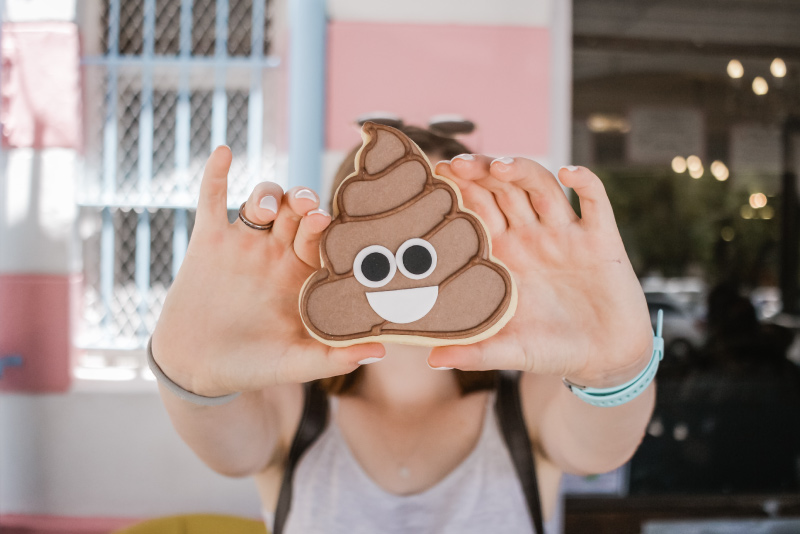Microbiome stool testing at Mint.
Why do we do it?
Microbiome – you’ve heard of this. It’s all the bugs in our guts plus the stuff they produce. It’s that stuff that’s so important to our health. It can be the difference between being anxious or not, being bloated and gassy or not, gaining weight or not. Every week we discover more about why these critters are so key to our health and longevity.
Good bugs when they live in a good environment produce short chain fatty acids. These acids increase the acidity of the intestines, which in turns makes it more hospitable to even more good bugs and less friendly to bad bugs.
This person doesn’t have many acids. They probably feel it too.

Can you just take probiotics and cross your fingers?
No.
Often when we take probiotics and after a few days they are no longer measurable in our stool unless we keep taking them. Why’s that? Because if the environment is not friendly to them setting up shop, then they can’t stay in business and we completely poop them out. We need bugs and a welcoming hood for them to live in.
But I take 50 billion probiotics a day!
No single bug, unless it’s pathogenic, can be held accountable for causing a health condition. The entire community of bugs is responsible. It’s the community together that decides what happens.
You’ve heard of lactobacillus and bifidobacterium which are a few of the hundred or so species in us. My gut bacteria are different from yours but the function is likely the same suggesting there is redundancy between these groups. So we don’t focus on one strain no matter the number. We should be focusing on the functional outcome of these groups together. Similarly, if we kill off one it’s probably not that big of a deal given its cousins will take over its function, so long as they are present.
How do we help build healthier neighborhoods in our gut?
- The more diverse our diet.
- The more diverse our gut bacteria.
- The most redundancies of function.
- The healthier we are.
Diversity is increased by the buzzwordy prebiotic – a lot of fibres aka plants and loads of them. You can also take prebiotics as supplements. You’ve maybe seen them – inulin, guar gum, starch powders, psyllium seed. If you’re sensitive to these foods ie: gassy or have IBS, then be careful and seek guidance.

Stool testing
We used to rely on stool culture. Growing the bugs in dishes. But this isn’t great because not all bugs grow on all dishes, except for the one’s left in your sink for days, amirite?
We have advanced in our testing ability to include PCR testing, which you’ve definitely heard of these last two years. PCR isn’t perfect though so it’s important to get a variety of methods of testing.
Not all bugs are good.
Parasites and Pathogenic Bacteria and Yeast are pretty common.
H pylori is a very common bacteria that a lot of people don’t know has taken up a room in your stomach.

Have a read of an article on H Pylori if you might like a good read: How is the most common infection in the world the least diagnosed in people with digestive conditions?
Check out some of H’s friends in the BBC – Bag Bugs Club.


Is it only about bugs?
No.
The function of our glands and organs matters a lot. And our genes also determine how our gut works.
This person really needs help producing the right amount of enzymes to break down their food.

Can stool testing really help IBS?
Yes.
Two people with IBS can have vastly different reasons for it. For one it can be an overgrowth of bacteria detectable on tests. For another it can be a type of sensitivity of the intestinal walls, which makes the act of digestion itself painful. Foods (high FODMAPS) that ferment sugars and feed certain bugs can create more gas. Certain bugs live in IBS guts unfortunately do a stellar job fermenting these foods and creating this visceral hypersensitivity. Here’s an example of a patient with IBS with these exact culprits.

A low FODMAPS diet helps me so much, can’t I just stay on it?
No.
Key bacterial players like bifido, F prauznitsii and Akkermansia that all need FODMAPS to flourish. If you stay on a FODMAPS diet for too long you can cause a mass extinction event and may not be able to get these bug besties back.
This poor guy has some endangered species.

So should you test it?
Maybe.
- If you have chronic digestive issues including IBS, yes.
- If you want to learn more about your microbiome, yes.
- If you’ve ever had traveler’s diarrhea and have never been well since.
- If you are a human being, yes.
Which test to do?
Now there are a lot of shitty tests out there. Let us help you choose which is the least shitty of them all. Er, most shitty. Ugh, you know what I mean.







